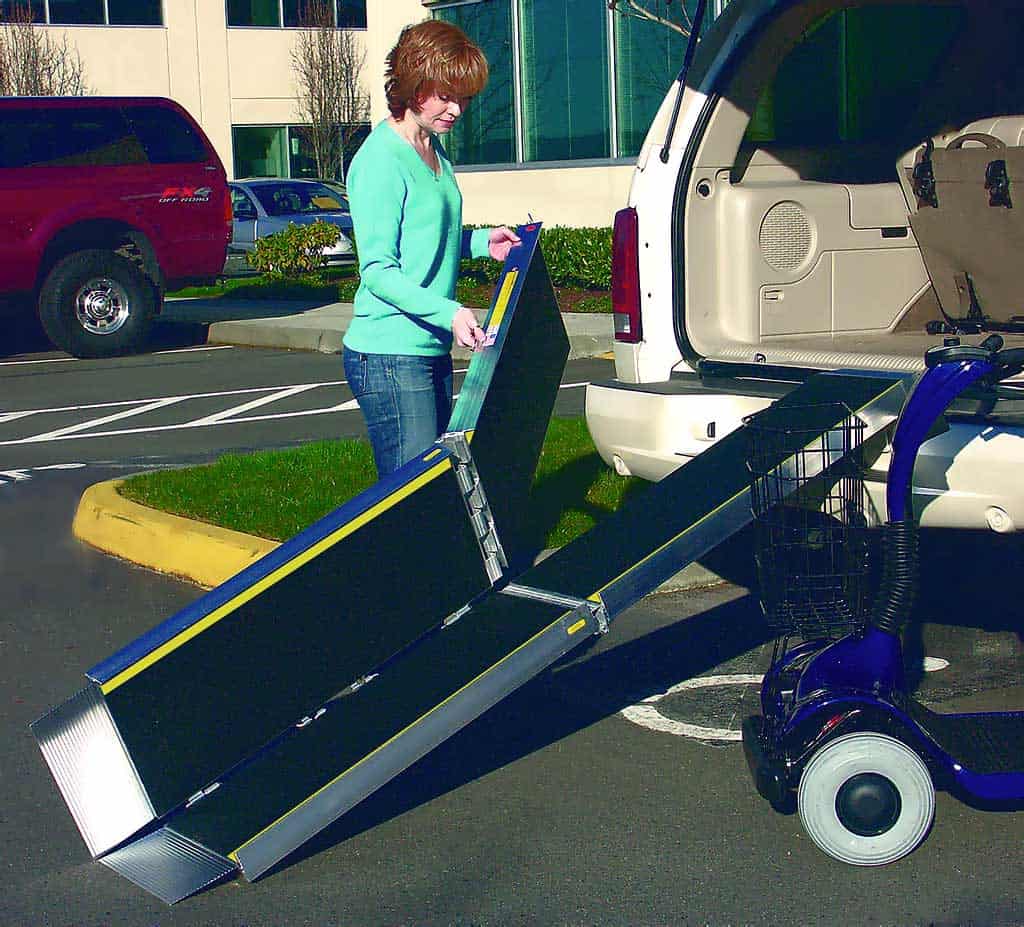Mobility aids may help some individuals living with Amyotrophic Lateral Sclerosis, or ALS. Since this degenerative disease impacts strength and motor control, specific adaptive devices may ease the strain for the individual while preserving their autonomy as long as possible. May is National ALS Awareness Month, which offers further information and insight.
May is National Amyotrophic Lateral Sclerosis (ALS) Awareness Month, passed by the US Senate in 1992. The aim of this commemoration is to focus on disseminating information pertaining to ALS to bring attention and garner support.
ALS, also known as Lou Gehrig’s disease, is a neurodegenerative disease disease that slowly robs the afflicted of their mobility, autonomy, and, eventually, their life. As the muscles atrophy, symptoms of weakness, fatigue, and spasms ensue, which causes much discomfort and difficulty with ambulating, self-care, and over time, breathing. The disease is progressive, and symptoms become more noticeable and challenging. There are some resources that may bring insight and comfort to those living with ALS and mobility aids may help with certain challenges.
Some common ALS symptoms include:
- Spasms, twitches, and cramps, particularly in the extremities
- Loss of motor control
- Weakness in arms and legs
- Frequent falls; prone to tripping or stumbling
- Clumsiness; dropping items more often
- Chronic fatigue
- Emotional lability
- Slurred speech and difficulty articulating words
- As the disease progresses, difficulty breathing and/or swallowing
- Paralysis
There are some ALS symptoms that closely resemble other conditions. See your physician or practitioner for more information and appropriate testing for an accurate diagnosis.
Mobility aids that may lessen the impact of ALS symptoms include:
Walkers
So, how can a walker help someone with ALS? In the early stages of the disease, a walker may be all that the individual needs to safely ambulate or move about. Rolling walkers may help the user that suffers from chronic fatigue, too. Walkers are a great resource to help reduce the risk of a fall which makes them an excellent implement for many living with this condition and others.
Walkers equipped with seats also help to combat the fatigue and weakness that accompanies ALS, providing a spot to sit, rest, and regain strength, as needed.
Seats
They come under a lot of different names, but a shower or tub seat is another versatile and valuable aid to have on hand for those with ALS. A seat that slides over the seat of a tub can help you in and out of the shower safely; a seat in the tub can be a convenient spot to sit while bathing. Looking for more support in the bathroom? Consider shower buddy lifts and frameless showers Talk to a mobility professional to learn more!
Chairs and Scooters
ALS patients experience weakness and loss of control over extremities which can make it challenging and at times, hazardous to walk independently. Spasms and the increase in falls taken by those afflicted with ALS make wheelchairs and scooters more than a convenience they are key to mobility.
The exhaustion and chronic fatigue that is symptomatic of this condition also warrant a wheelchair or a scooter. Many ALS patients report an increase in clumsiness, like dropping items or objects and being able to transport items smoothly in a chair or scooter may help resolve this and add to the autonomy of the user.
Lifts
Stairlifts are excellent aids to have in a home where there are steps or stairs, particularly in the early stages of the disease. Lifts provide a smooth transfer to the second- or other- level of the home, where a bedroom or bathroom may be located. These aids enable the user to safely ascend and descend stairs at will, while also providing room and allowing others in the home full use of the stairway.
During later stages of ALS, a free-standing lift can provide support to assist the user in and out of bed, the bath, or even a car or swimming pool- plus, it provides support and security for any caregiver, ensuring they are not injured or hurt during these transfers. Lifts may be covered in full or in part by insurance coverage- got questions about paying for your new lift? Call or visit us to learn more today!
Ramps
There are few homes or buildings that would not benefit from a ramp. Portable ramps are both affordable and versatile. These are easy to transport, too providing a means of easier access wherever you go. For the individual living with ALS, a ramp offers a way to access and enter the home, work, or other establishments, without the painful and dangerous task of climbing stairs. Tingling feet can lead to loss of balance and a fall; a ramp may help.
If you or a loved one lives with ALS, talk to the team at Pacific Mobility about devices and aids that can improve access, ease, and overall quality of life. Call or visit today!
President, Husband, Father, Grandfather Graduate of UC Davis- Bio Sci Major- Go Aggies! Jeff has extensive experience in all of Pacific Mobility’s products and services, and specializes in accessibility products as well as stairlifts, ceiling lifts and custom wheel chairs. His hobbies include spending time with family, gardening, mountain biking, exercising and off road motorcycle riding.
24 years as Owner/President of Pacific Mobility Center – selling, installing, and servicing stairlifts, porch lifts, ceiling lifts, pool lifts, handicap ramping, specialty wheelchairs, scooters, power wheel chairs, and other power mobility devices
Certified Environmental Access Consultant since 2008
Licensed General Contractor since 1998
Certified Aging in Place Specialist since 2016
Board Member for Home Access Professionals
Member of Association of Members of the Accessibility Equipment Industry (AEMA)




